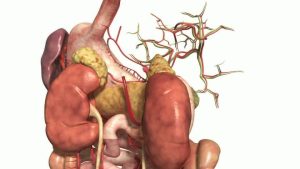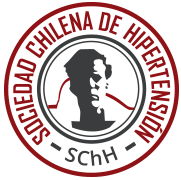We spoke with Dr.. Roberto Jalil about the Chilean Hypertension Society. Besides, The outstanding nephrologist makes an radiography of the country regarding this disease, that according to statistics from the 2015 occupied the third place of morbidity and mortality in our population.
On the other hand, The doctor. Jalil demystifies some social beliefs around the strong link of nephrology with hypertension. The health professional also highlights the important role of transdiscipline around hypertension, emphasizing the enormous contribution of professionals from different areas of medicine, as well as the world of basic and biomedical sciences.
How was the hypertension society?
The Chilean Hypertension Society is a fairly old organization within the groups that are subsidiaries of the Medical Society of Santiago or Chilean Society of Internal Medicine. It emerged in the 1970s from a group of medical friends who were dedicated to hypertension, either because of their practices or clinical and teachers associated with this aspect.
Society became a space that summons doctors of different aspects, Many of them of general medicine, Primary Care, Family health, Internists, Pediatrician and Sub-Specialists of Cardiology, Endocrinology and nephrology, There is also a slope strongly linked to biomedical and basic research.
In Chile there are two academic organizations related to hypertension, one of them is the foundation of arterial hypertension, linked to citizen campaigns around the subject, And on the other hand is our society, which is related to information and dissemination activities around the progress and scientific and medical developments of hypertension, giving space to new knowledge through an appropriate diffusion channel.
What is the radiography of our country with respect to hypertension? Are we a society prone to this pathology?
Chile behaves like a first world country, But with the usual risk factors of developing countries, arterial hypertension and its consequences are the main cause of morbidity and mortality of the developed world and that pattern is no different from what we have.
The risk factors with which hypertension is most associated have to do with some aspects of people's way of life, especially with excessive salt intake, Low potassium consumption, The high cholesterol and protein intake profile, versus the low level of fruit and vegetable intake. It also has to do with the prevalence of obesity and overweight, We are a country that unfortunately has one of the highest overweight statistics in Latin America. Positively, In recent years it has begun to become aware about how important it is to limit salt consumption (or sodium) In the population and stimulate healthy life habits, and reduce the consumption of tobacco and alcohol, as factors associated with the appearance of hypertension.
Its specialization area is nephrology however, people do not know -mostly- The role of this discipline associated with arterial hypertension themes, obviating the powerful impact that the study has around the area with the pathology.
How is nephrology linked to hypertension?
People link hypertension to cardiology, esto tiene que ver con un desarrollo histórico de esta área que está muy bien instalada, ya que los médicos Cardiólogos desarrollan de manera muy profesional su trabajo. However, la Nefrología está profundamente vinculada con la Hipertensión desde los orígenes mismos de la enfermedad, que tienen que ver con mecanismos que traducen alteraciones genéticas que hacen que nuestro organismo retenga más sal de la que necesita y eso se relaciona con la actividad de los riñones. Hay un desconocimiento en la sociedad sobre la Nefrología, la que se confunde con la Urología, siendo disciplinas completamente distintas.
El funcionamiento renal participa de la génesis de la Hipertensión Arterial, y las terapias orientadas al tratamiento de la hipertensión tratan de interferir la acción del riñón sobre la hipertensión y viceversa. En esta tarea también participan los médicos Generales, Internists, médicos de Familia y Pediatras, los cuales han ido tomando conciencia de que la hipertensión del adulto comienza a manifestarse en forma pre-clínica y clínica en etapas de la infancia y la adolescencia.
La importancia de las Glándulas Suprarrenales en la génesis y mantención de la Hipertensión:
Aun no se ha logrado dimensionar en su justa importancia el rol de estas glándulas en la Hipertensión however, en los últimos 20 años en diversas investigaciones lideradas por la Pontificia Universidad Católica de Chile, se ha logrado establecer que las Glándulas Suprarrenales son bastante más relevantes de lo que se pensaba en la génesis de distintos tipos de hipertensión. Muchos de los médicos que diagnosticaron a pacientes como hipertensos por razones genéticas, se dieron cuenta de que no era así, sino que tenían algún tipo de anomalía cuyo origen se alojaba en algún tipo de alteración en el funcionamiento de la Glándula Suprarrenal. Esto ha permitido abordar la hipertensión a través de tratamientos diversos y novedosos, orientados al buen manejo de la glándula en esta enfermedad.
however, en los últimos 20 años en diversas investigaciones lideradas por la Pontificia Universidad Católica de Chile, se ha logrado establecer que las Glándulas Suprarrenales son bastante más relevantes de lo que se pensaba en la génesis de distintos tipos de hipertensión. Muchos de los médicos que diagnosticaron a pacientes como hipertensos por razones genéticas, se dieron cuenta de que no era así, sino que tenían algún tipo de anomalía cuyo origen se alojaba en algún tipo de alteración en el funcionamiento de la Glándula Suprarrenal. Esto ha permitido abordar la hipertensión a través de tratamientos diversos y novedosos, orientados al buen manejo de la glándula en esta enfermedad.
Fuente: 4ID/CONGRESS, All rights reserved. ®
Journalist: Patricio Grunert Alarcón. ®
To be reproduced, please contact: support@4id.cl
Cite as source: 4ID/CONGRESS ® / Patricio Grunert Alarcón, All rights reserved. ®


